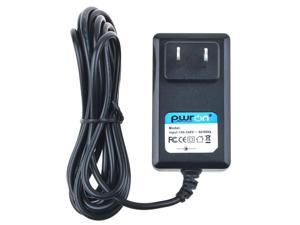Best Usb Serial Adapter For Mac

Usb to serial adapter drivers free download - Keyspan USB Twin Serial Adapter, USB Audio ASIO driver, HP DeskJet 800 Series USB Drivers, and many more programs. Best to-do list apps of 2019 for. USB to RS232 Adapter with PL2303 Chipset, CableCreation USB 2.0 Male to RS232 Male DB9 Serial Converter for Windows 10, 8.1, 8, 7, Vista, XP, 2000, Linux and Mac.
If you're just looking for something to expand your port options for connection and charging but don't want to shell out the big bucks, Lenovo's USB-C hub is a low-cost alternative. This is not a Thunderbolt 3 supported hub, but it will connect and work with your 2016 or later MacBook Pro, just in a slightly limited capacity. If you're stuck with a MacBook that only has USB-C ports, you're not stuck using only USB-C accessories. You also don't have to be stuck with a dongle. A solid, fast-transfer USB-C hub is a worthy investment.
I recommend because it'll solve all your cable needs and is the best option for most people. This post may contain affiliate links. See our for more details.
In my line of work I use serial on a near daily basis. Currently, I have 3 different USB>Serial cables; an IO Gear GUC232A, a Cables to Go (Prolific PL2302 chipset) and a older Radio Shack cable (with an older Prolific chipset). I have a line of controllers that I program (think along the lines of an industrial PLC) and ever since I switched to Win7/64 I've had issues off and on. The RS cable doesn't work at all, the IO Gear is heavily glitchy and the Cables-to-Go version seems to have a pretty decent success, though it has glitches here and there.
Fast forward to last week, I got two new giant 12' x 84' programmable LED signs. They're basic two color LED panels that use the manufactures software package to do the programming, over RS232 of course. NONE of my cables will talk to the signs, at all. The software requires that they talk at 115200, so I have a feeling that is part of the issue (all of my other stuff talks fine at 9600). After 3 hours dicking around with different versions of drivers for the USB adapters, thinking there was something goofy going on with my laptop, I said screw it and took one of the signs home. I installed the Cables to Go adapter on one of my home workstations (Win7/64) and still no dice. Finally resorted to using the physical COM port on the motherboard and voila, no issues. 
I called the manufacture today, 'we don't support Win7/64', he started backpeddling when I told him it ran fine on my Win7/64 machine that had a physical COM port, so clearly the issue is with the USB adapter. He said he's never found a machine that had Win7/64 on it with a physical COM port for him to test it on. /sigh As a for-kicks-and-grins, I installed the same Cables to Go adapter on an old XP32 laptop I had laying around and of course, it worked without issue.
So, I know that; Win7/64 can program it and that it's not a direct OS issue The Cables to Go adapter is capable of operating under XP32 @ 115200 baud Which would lead me to believe that it's a driver issue with Prolific and 7/64 So, I'm after a new USB adapter. Does anyone that uses RS232 often have any good suggestions? I'm after a new laptop, but only one of the models I'm looking at has a serial port, though a few have ExpressCard and I've had great luck with ExpressCard > RS232, but that laptop won't be purchased for another ~month. Well, FTDI apparently gets the love as does the Keyspans, they get very high ratings everywhere I look, so I'm going to pick up a USA-19H and give that a shot. Apparently the Keyspan uses a little more than a driver and it keeps the same COM port setting, regardless of which USB port it's plugged into (something I've had an issue with, with the Prolific's, creating multiple COM ports depending on which USB port it was plugged into).
If that doesn't work, I'll pick up an FTDI model and if THAT doesn't work, I'm going to pickup a pair of VLinx serial servers, which I probably should do anyhow. Apparently the Keyspan uses a little more than a driver and it keeps the same COM port setting, regardless of which USB port it's plugged into (something I've had an issue with, with the Prolific's, creating multiple COM ports depending on which USB port it was plugged into). This is based on whether the chip has a unique serial number or not. If so, windows will attempt to assign unique device names, otherwise it gets the first available. I don't know how relevant it is for Win7/64, but on XP I always use the chipset manufacturer's reference drivers rather than the installation disk that comes with the adapter.